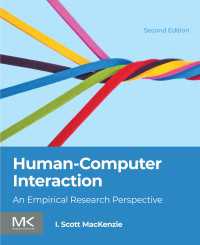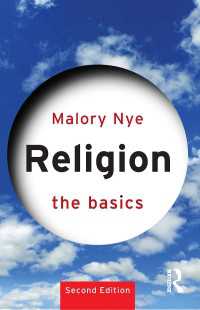- ホーム
- > 洋書
- > 英文書
- > Science / Mathematics
Full Description
Since Hilary Putnam offered multiple realization as an empirical hypothesis in the 1960s, philosophical consensus has turned against the idea that mental processes could be identified with brain processes, and multiple realization has become the keystone of the 'antireductive consensus' across philosophy of science broadly. Thomas W. Polger and Lawrence A. Shapiro offer the first book-length investigation of multiple realization. Their analysis of multiple realization serves as a starting point to a series of philosophically sophisticated and empirically informed arguments that cast doubt on the generality of multiple realization in the cognitive sciences. In the course of making their case, they respond to classic defenses of multiple realization that Jerry Fodor, Ned Block, and other prominent philosophers of psychology have offered. Polger and Shapiro conclude that the identity theory, once left for dead, remains a viable theory of mind--one that, when suitably framed, enjoys the benefits typically thought to accrue only to theories of mind that presuppose the truth of multiple realization. As Polger and Shapiro see matters, mind-brain identities have played an important role in the growth and achievements of the cognitive sciences, and they see little prospect--or need--for multiple realization in an empirically-based theory of mind. This leads Polger and Shapiro to offer an alternative framework for understanding explanations in the cognitive sciences, as well as in chemistry, biology, and other non-basic sciences.
Contents
SECTION I. WHENCE MULTIPLE REALIZATION?; SECTION II. THE EVIDENCE FOR MULTIPLE REALIZATION; SECTION III. AFTER MULTIPLE REALIZATION








